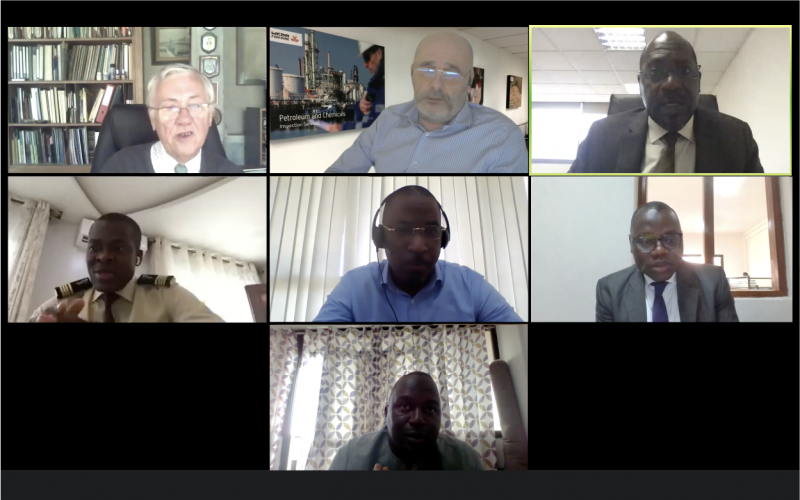The global coronavirus pandemic caused overnight challenges for governments around the world adapting to the impacts on supply chains and goods clearances. Now, a group of supply chain and Customs experts have come together virtually to underline the importance of digitalisation as the world starts its recovery in a post COVID-19 world.
The first in a series of webinars from Webb Fontaine (www.WebbFontaine.com), one of the leading providers of Customs and trade solutions to governments worldwide, welcomed more than 400 delegates logging in from around the world to hear from a panel of experts. The ThinkTank webinar series has brought experts together in one space with a purpose of knowledge and ideas sharing.
The “Digitalisation of Trade and Revenue in Disaster Environments” webinars delved deep into key themes such as supply chain and revenue collection, in the current trade facilitation ecosystem. Held in both English and French, the sessions were interactive with live polls and questions asked by delegates throughout, helping to bring in even more ideas to the webinar.
The online discussions featured insights from global trade experts including Frank Ferguson, Former Director General of the Montserrat Customs & Revenue Service (MCRS); Stephen Adekunle Oloyede, Comptroller Risk Management – Nigeria Customs Service; Apeh Fateh, Assistant Comptroller ICT & Head of Implementation Team for Nigeria Customs Service; Tapio Naula, VP – Trade Facilitation Program at ASYAD Group; Dr. Jawwad Agha, Ex. Head of Customs Administration, FBR, Pakistan; Mr. Ahmed Al Khatab, Commissioner Assistant for Customs & Logistics at Aqaba Special Economic Zone (ASEZA); Major Raouf Malehossou, Head of Institutional Reforms, Benin Customs; Eric AKOUTE, Director Research and Investment – APIEX (Investment and Export Promotion Agency), Benin; and Serge Manouan , Director General – GUCE (Foreign Trade Single Window) Côte d’Ivoire.
The panel was moderated by Michel Zarnowiecki, Director of Institutional Reforms at Webb Fontaine and formerly Senior Regional Coordinator for Customs and Border Affairs at the World Bank, and also saw contributions from Webb Fontaine experts: Pascal Minvielle, Executive Director of Webb Fontaine Group; Ope Babalola, Managing Director of Webb Fontaine Nigeria; and Ara Shamirzayan, Director of IT Development and Research, Webb Fontaine Group.
Real life examples and recommendations on how to ensure business continuity and secure contingency deliveries were shared by the panellists with delegates, who also had an opportunity to ask questions in real time. A number of polls were also conducted, which saw an overwhelmingly positive response to the request of a simplified import process, subject to reinforced ex-post compliance checks.
Commenting on the insights shared, Michel Zarnowiecki said: “The panel highlighted the importance of digitalisation, not only for individual countries, but also as part of the broader multilateral framework and the regional and international surroundings. Digitalisation is a pre-requisite, but it must be combined with practices by both customs and the private sector to enable it, process-wise.
“While 80 per cent of international cargo movement is by sea, regional connectivity is usually by road, hence the need to ensure, among other issues, digitalised interface for transit and TIR. There is a strong requirement for unification of processes, not only in the regional environment, but also for international transactions.”
He added: “While the situation requires immediate action, now may also be the opportunity to implement actions and systems that have been recommended in the past. The opportunity for reforms is staring at us and there is no escape from it anymore.”
Webb Fontaine are soon to release an overview paper summarising the key takeaways and learnings from the webinar, while highlights are available to watch on the Webb Fontaine LinkedIn (https://bit.ly/3eyaNfL) platform, where future webinar topics will also be announced.
